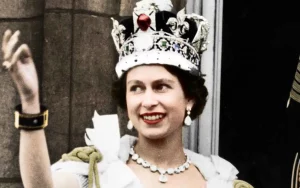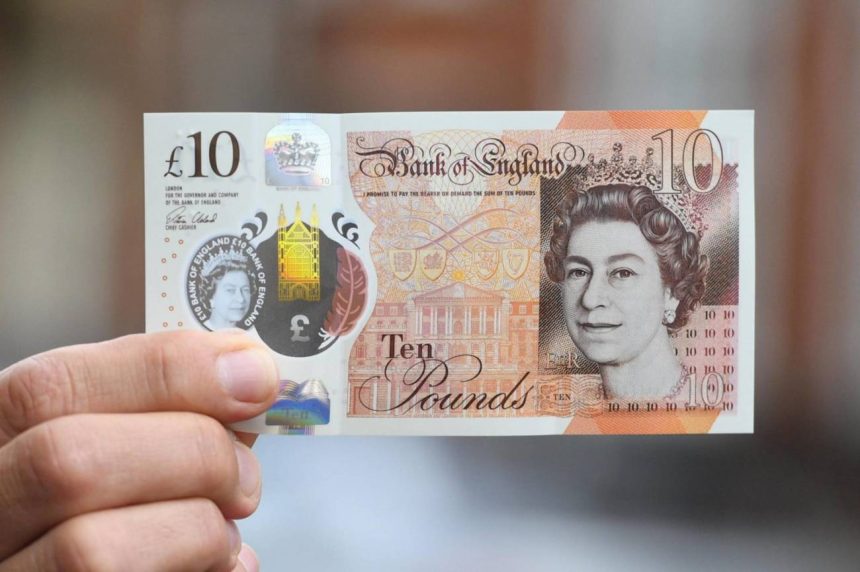The United Kingdom’s Queen Elizabeth II who reigned for more than 7 decades passed away at 96 at Balmoral Castle, her home in Scotland on Thursday, September 8.
The United Kingdom’s Queen Elizabeth II who reigned for more than 7 decades passed away at 96 at Balmoral Castle, her home in Scotland on Thursday, September 8. The death of the Queen not only marks the end of an era for the British monarchy, but it will also affect the nation’s economy as the mourning period comes with a price tag.

Probable economic impact on the UK after Elizabeth II’s death
Banks and the stock market in the UK will be closed on the day of the Queen’s passing. Also, a bulk of companies in the UK are also likely to follow the same out of respect for the Queen. This will be the British economy’s first significant hit since the passing of Queen Elizabeth II.
The funeral will be held about 10 days after Her Majesty’s passing. An official bank holiday will be declared, resulting in a second closure of the stock market and banks during the period of mourning, which would further harm the British economy which is already battling to save itself from the recession.
Change in currency, stamps, passports, uniforms expected
Since 1952, when Queen Elizabeth II was crowned monarch, her image and cypher have appeared on nearly all government-issued items, including coinage and passports. However, following Queen’s death, the UK will see lots of changes and updates from coins to passports.
All the coins and cash notes in the UK depict the image of the Queen, however, following her death, the new currency is expected to be minted with the face of King Charles III. The new cash will be produced and distributed into circulation while at the same time, the old money with Elizabeth II’s face will be phased out gradually.
The UK’s biggest mailing service, Royal Mail, has to create new stamps by replacing the Queen’s image with that of King Charles III. Accordingly, all the cyphers across postboxes related to the Queen will also be replaced by the new cypher chosen by the King.
Notably, these exercises of replacing the image on currency, stamps, and cyphers of Queen Elizabeth II with King Charles III will cost a considerable sum to the UK. In addition to this, all UK passports will also require a change following the Queen’s death, thus adding more to the cost.
Apart from the change in currency and stamps, many uniforms in the UK including those worn by police officers and the military will be changed as the cypher of the Queen will be replaced by that of the King. Police and military gear will also require the change as some of the gears have the Queen’s initials and regnal number, footing a huge bill.
Death of Queen brings a price tag to crisis-hit UK
Given all the bank holidays, company closures, funeral expenditures, coronation expenses, changes to passports, military and police uniforms, currency adjustments, and other minor institutional changes, Queen Elizabeth II’s death will probably cost $1.6 billion to $7 billion to the British economy, according to Independent.
It is pertinent to mention that the UK is battling to save itself from getting into an economic recession as it faces inflation and an energy crisis. As the total measure of inflation surpassed 10% for the first time since the 1980s, the Bank of England increased rates by 0.5% points this month, the largest single increase in nearly 30 years.
According to government data, a fifth of UK households now faces an average shortfall of £60 per week between what they earn and what they need to pay for necessities like electricity bills, rent, transportation, and food as people’s disposable income is at its lowest level in almost five years.
On Wednesday, the Sterling fell 064% to $ 1.145, a level not seen in over 35 years, BBC reported. Furthermore, the Bank of England also asserted that a weaker outlook for the UK economy along with a stronger dollar was putting pressure on the sterling. The Bank anticipates that the economy will contract in the final three months of 2022 and continue to contract through the end of 2023.










